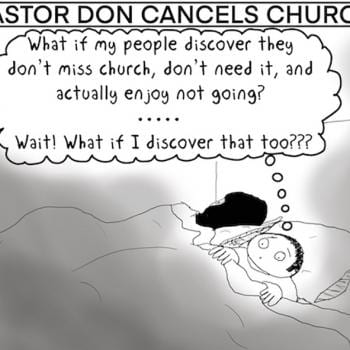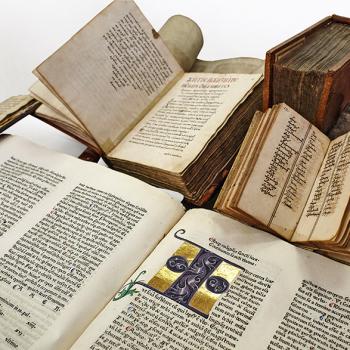I am convinced that, despite what I am sure will be countless calls to “Put Christ back into Christmas!” and other such yearly holiday pleas, most people really have no desire for God to actually show up during this season.
We sing, “O Come, O Come, Emmanuel.” With these words, we call for God to be with us. The tune touches us, the words sound good.
But I wonder—yes I wonder. I wonder if we know what we are asking for when we sing these words.
Personally, I think we expect a heavenly butler to show up and do our bidding. After all, isn’t that what God is about? To make sure we human beings are fulfilled, happy, rich and satisfied?
Surely God is Santa Claus squared–just waiting to deliver all those toys for big boys and girls as well as little ones!
But as I read the prophets, especially as they speak of the Day of the Lord, I see that the day when God does show up is more to be dreaded than celebrated. In the holy presence of God, real righteousness and justice show up. Our own pretendings as righteous and just people are exposed as sham coverings to hide ambition, selfishness and pettiness.
I am particularly struck this year by the words in Mary’s Magnificat–those worlds of praise she spoke after Elizabeth, her cousin, confirmed that she was indeed carrying in her womb the Holy One.
They are not comforting words for those who have much material comfort themselves.
Mary’s song says that God, in remembering her lowly status, “ . . . has scattered the proud in the imagination of their hearts. He has put down the mighty from their thrones, and exalted those of low degree. He has filled the hungry with good things; and the rich He has sent empty away.”
Could it be the reason that most Americans prefer Christmas to the far more important celebrations of Easter and Pentecost is that at Christmas, we get to see the Holy One as helpless baby?
That means we get to tell God what to do, as we put the diapers on Jesus’ little behind.
But at Easter, when facing the resurrected Christ, and at Pentecost, when acknowledging that God does indeed expect transformed lives, we tend to get a bit skittish. We have to stop worshiping ourselves.
Christianity could dispense with Christmas altogether (the Gospels of Mark and John have no stories of the birth of Jesus and nor is it mentioned elsewhere in the New Testament) and probably experience a far more robust form of faith.
Some faith groups have actually forbidden the celebration of Christmas. In addition, church historians know that part of the reason for the December date is to incorporate early celebrations of the winter solstice. It is unlikely that this birth took place in December.
Even so, I think the celebration of the Incarnation has biblical legitimacy. In addition, fun, lights, decorations, gifts, parties and make-believe help fill out the human soul and can be delightful pointers to the Holy One.
Yet I grieve to see Santa Claus turned into an object of worship and reverence, one who knows all and can be everywhere and is the giver of all good gifts. Omniscience and omnipresence are characteristic of God and God alone.
God, and God alone, holy, just, full of mercy, deserves to be worshiped. But that’s scary, so we choose the mediated Santa, prefer to see the Divine as helpless baby, and ignore words spoken to Mary, “This child is destined for the falling and the rising of many in Israel, and to be a sign that will be opposed so that the inner thoughts of many will be revealed—and a sword will pierce your own soul too.”
Remember this question: “Does the world need a Savior?”












